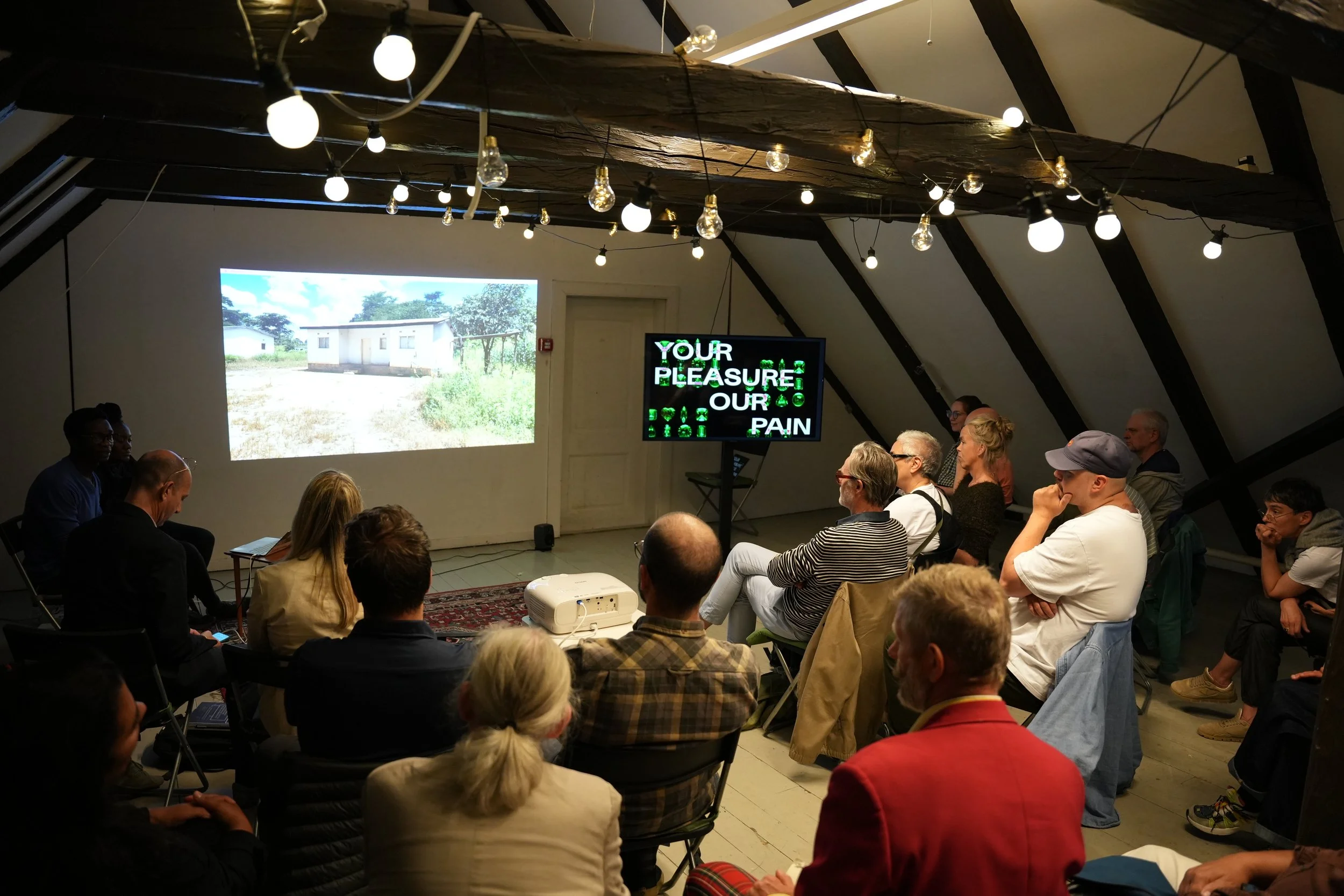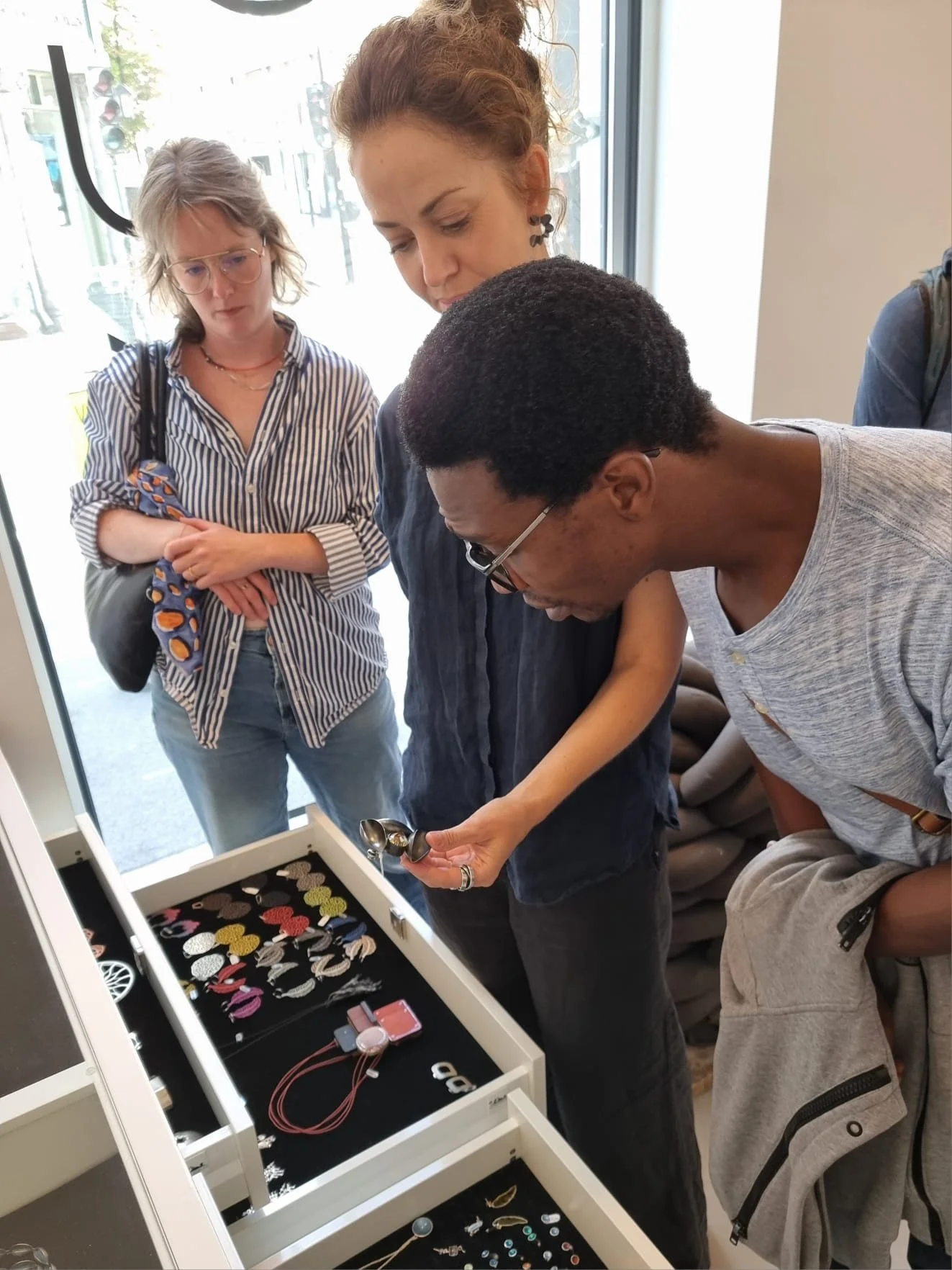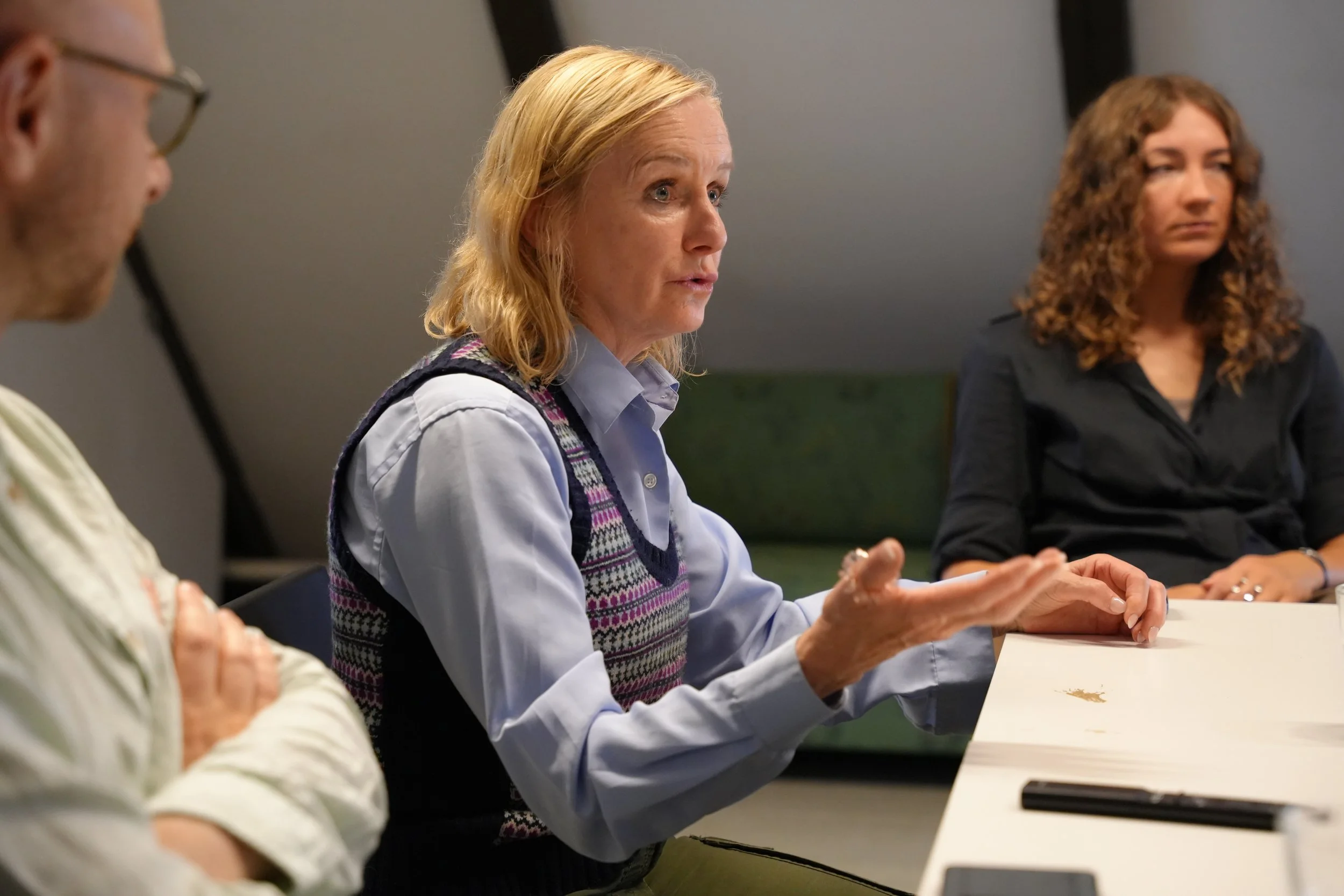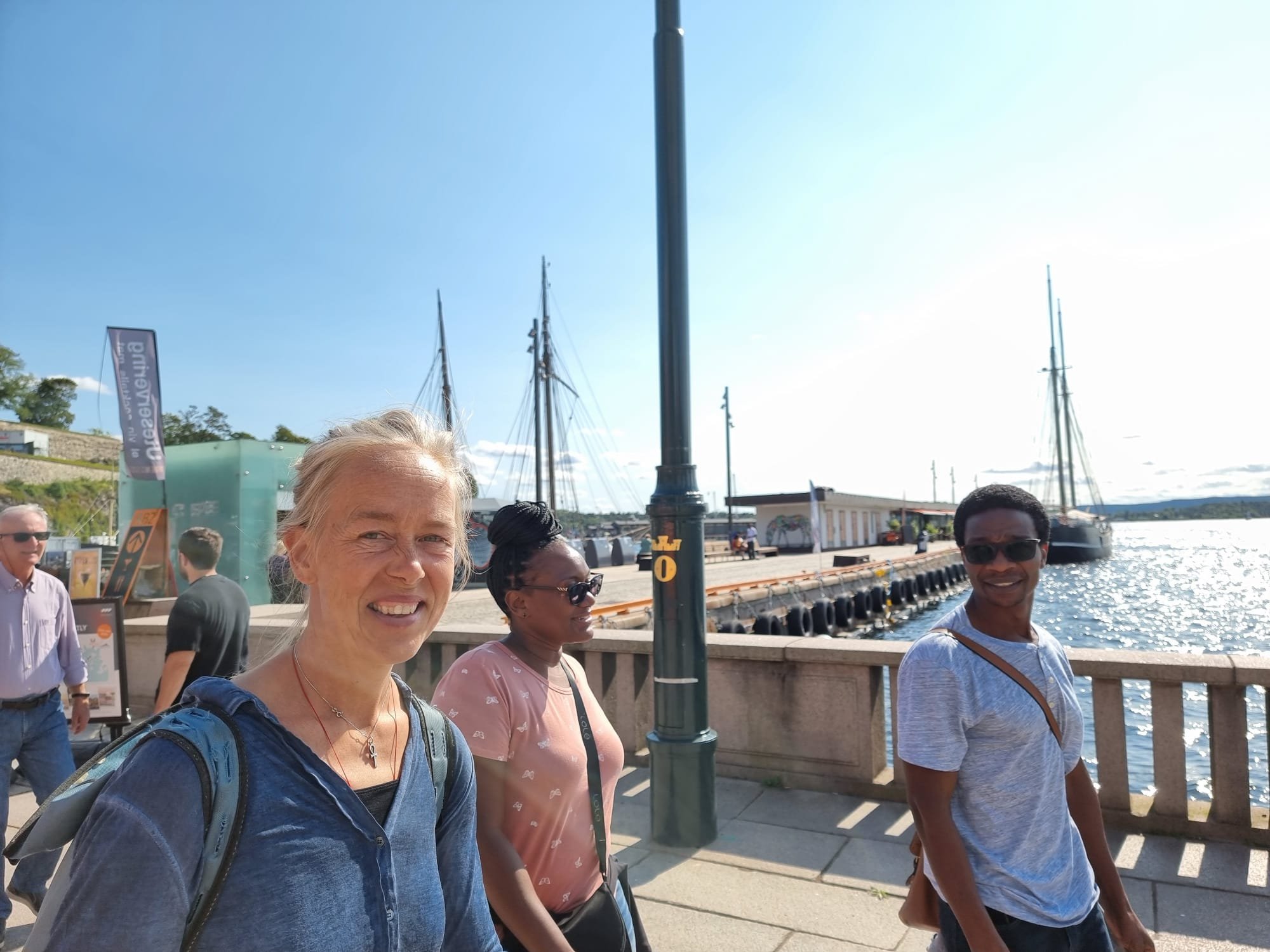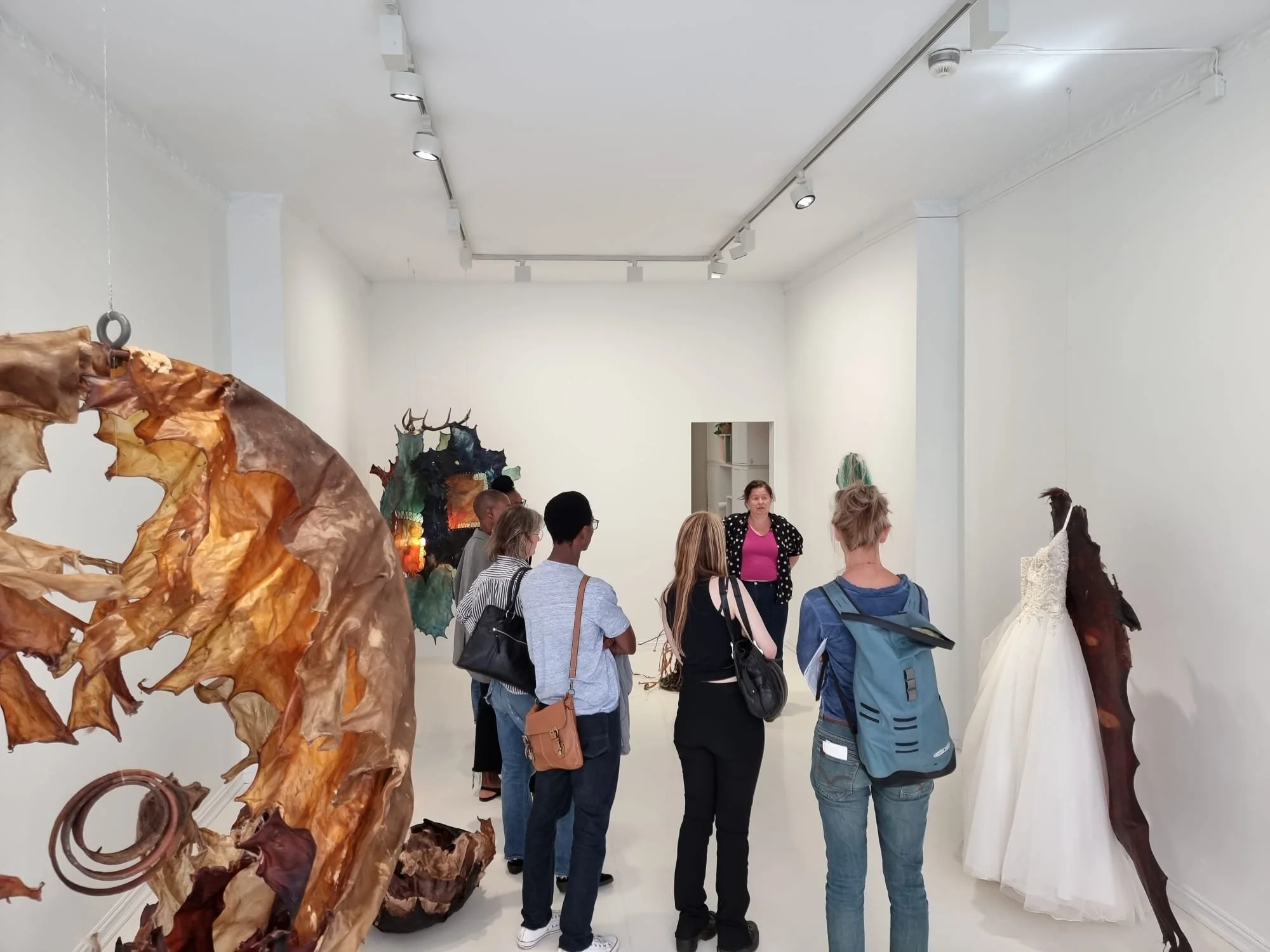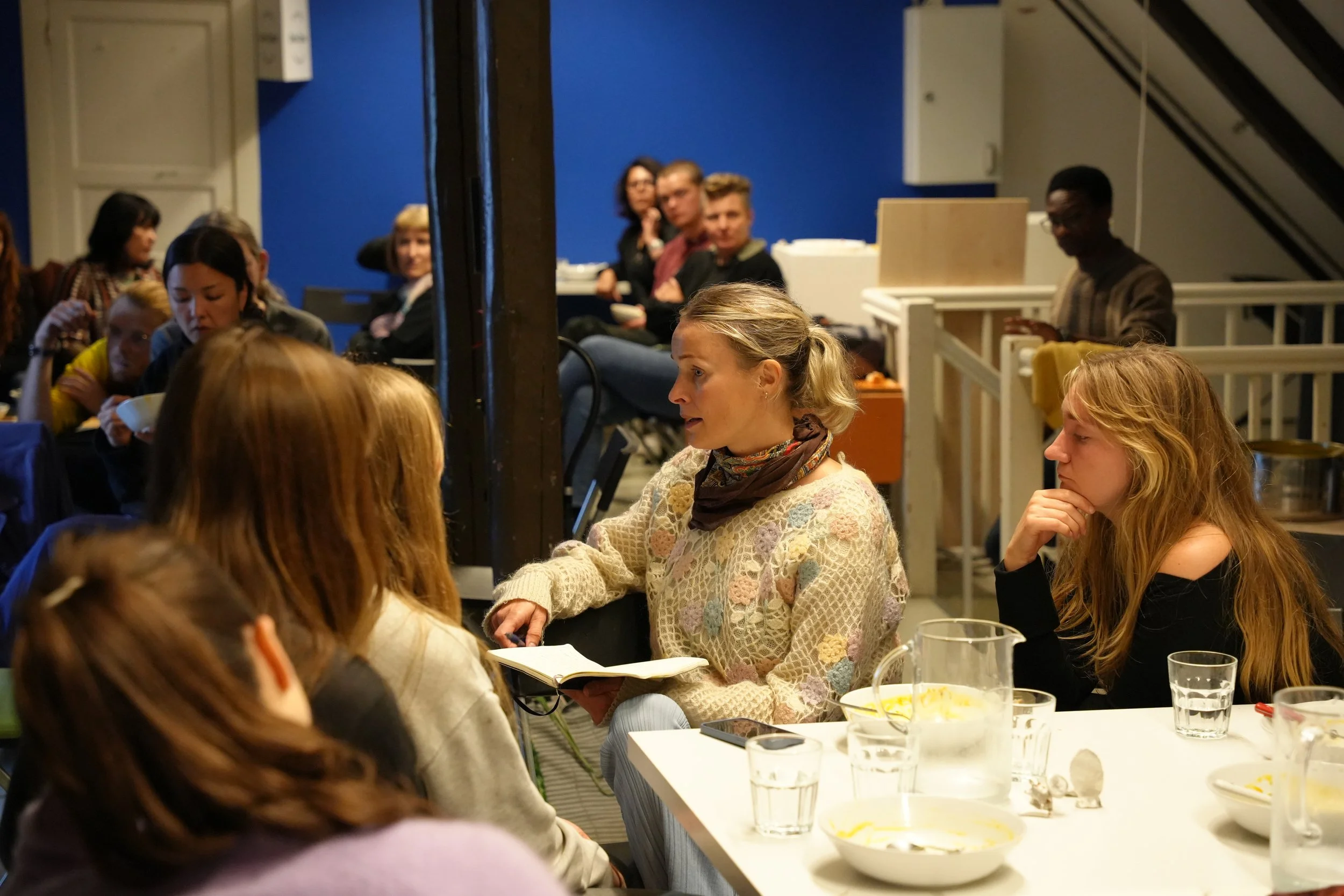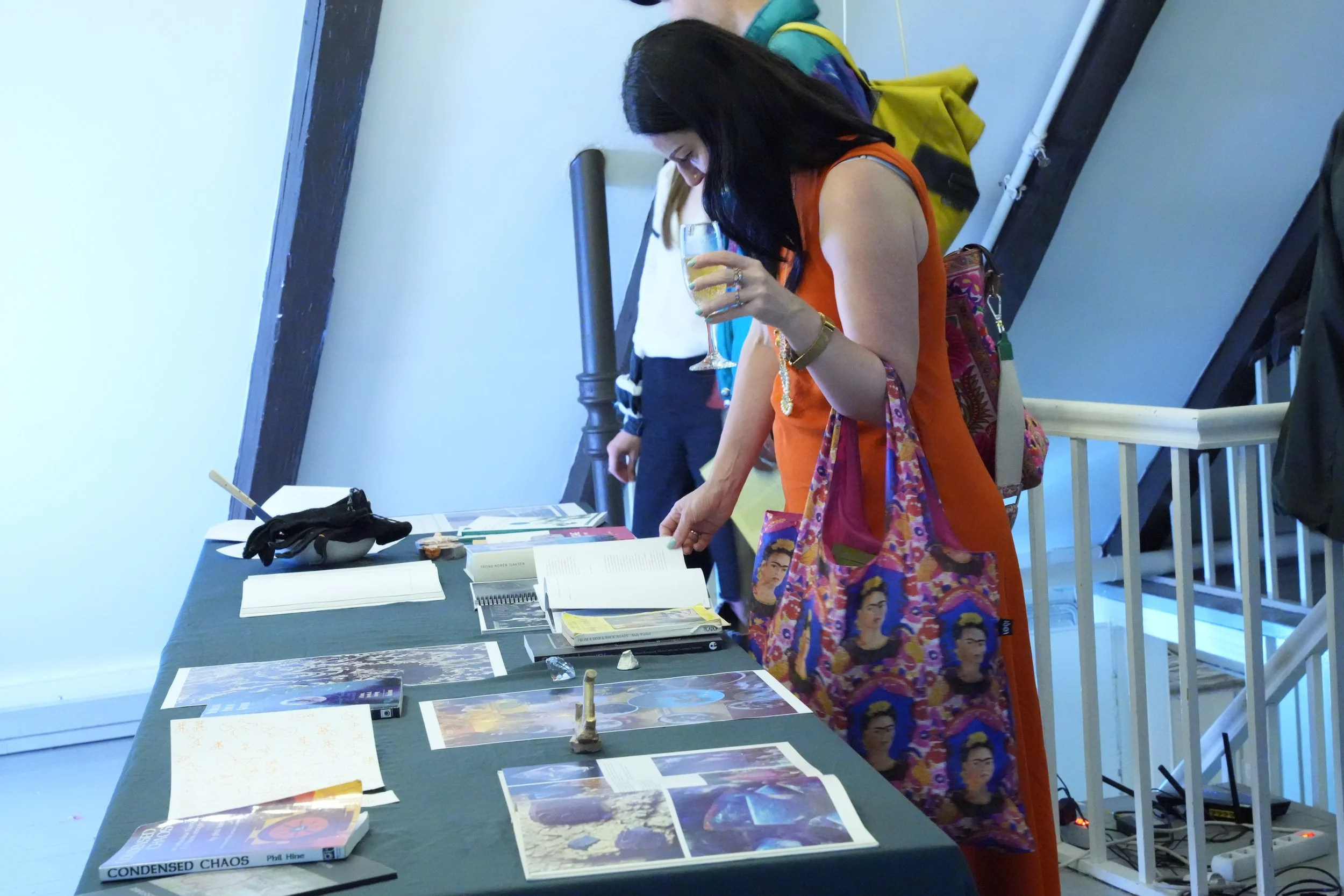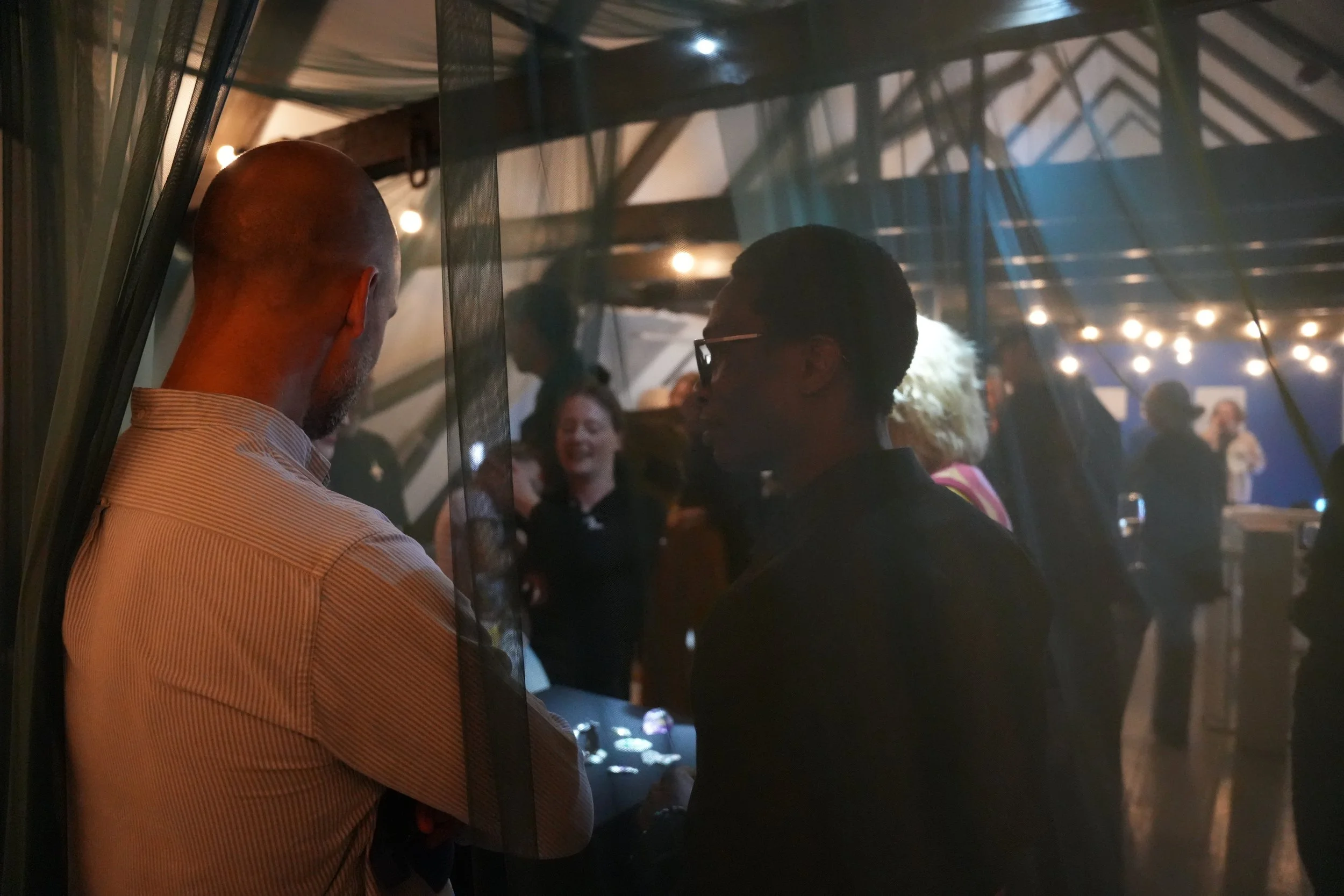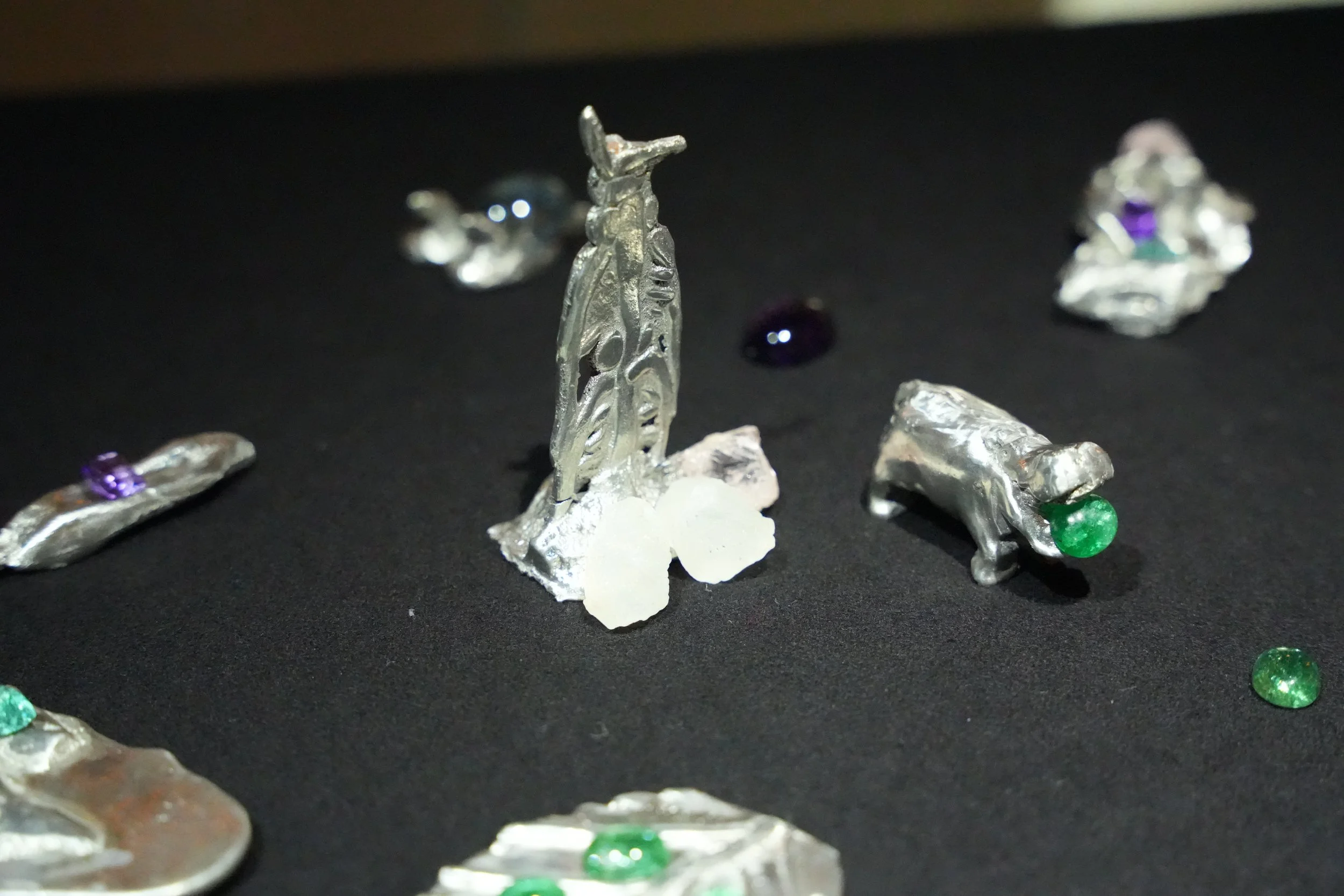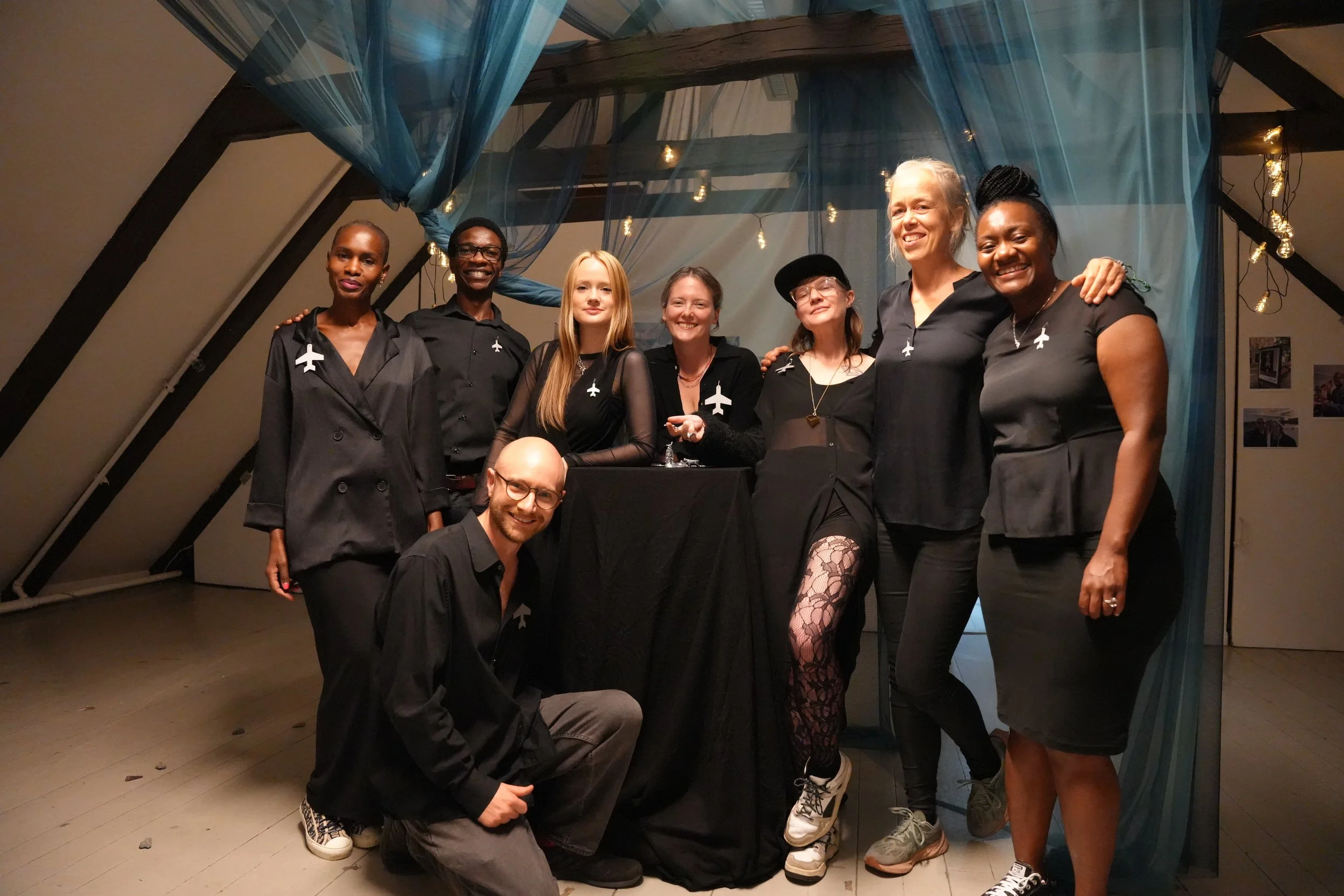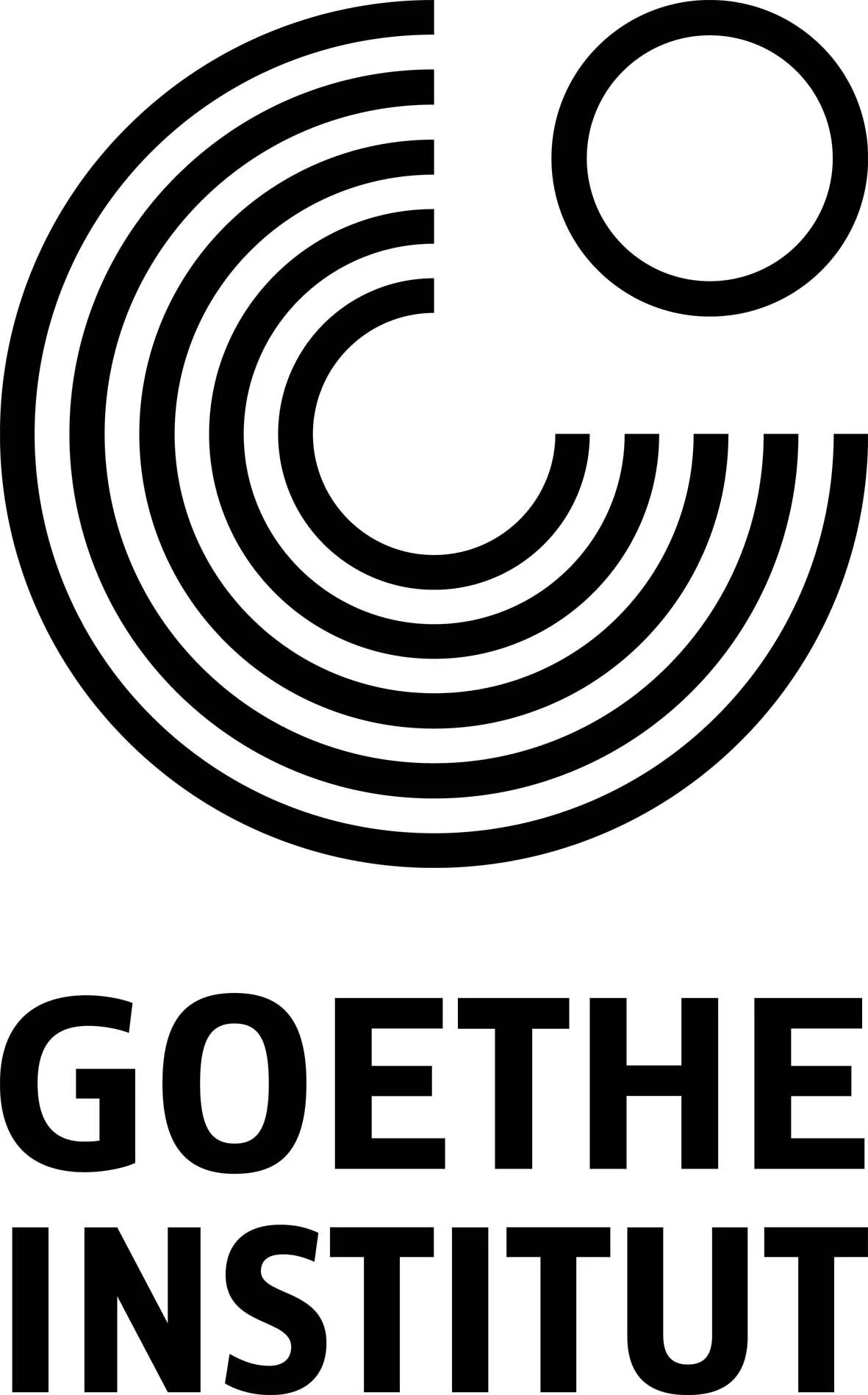Developed by Rudolf Kangwa, Lusaka Centre for Contemporary Art (LuCAC), Goethe-Institut Norwegen and Institut français de Norvège, non-profit centre for art, research and learning PRAKSIS (Oslo)
Residency dates: 12 August - 9 September 2024
“Luxury’s contributions include sky-high emissions, growing dependence on fossil fuels, opaque supply chains, lack of meaningful environmental commitments, deforestation and serious labour complaints linked to exploitation and poor health and safety.” (Quiet (but polluting) luxury – luxury brands are out here costing us the earth, May 8, 2023, STAND.earth, https://stand.earth/insights/quiet-but-polluting-luxury-luxury-brands-are-costing-us-the-planet)
The luxury industry offers its consumers status, authenticity and integrity - the chance to meet aspirations of wealth and class and transcend identities. However, the reality of the industry is much darker. Luxury fashion alone contributes 4% of global carbon emissions (McKinsey, Fashion on climate report, 2020), the same amount of greenhouse gases as France, Germany, and the UK combined. Further to this the industry’s supply chains are notoriously opaque, with materials and production processes used by European luxury brands often involving child labour, hazardous working conditions and exploitation of people in the Global South.
Your Pleasure, Our Pain - The ethics of luxury takes the form of a one-month, active group residency, accompanied by a series of public events and outputs. It is developed by Goethe-Institut Norwegen and Institut français de Norvège, non-profit centre for art, research and learning PRAKSIS (Oslo), Lusaka Centre for Contemporary Art (LuCAC), and Rudolf Kangwa – a Zambian gemstone cutter who seeing the reality of gem mining in Africa after working for a major exporter of gemstones, decided something must be done about the industry.
For context, Zambia is the top exporter of gemstones other than diamonds in Africa, of which France, Germany, Switzerland, the UK and Italy are among the highest importers of these stones globally - together with China, the USA and India (Verité, Trafficking in Persons Risk Factors in Production of Gemstones - report funded by U.S. Department of State, 2016). In Zambia, over 28% of the miners are children as they can fit into small pits (ibid). While the land and mines are owned by people living in the areas of the mines, the prices of the raw stones are set by foreign buyers who regularly underpay miners, who have no education in valuing the stones. Kangwa is working to teach mining communities how to value and cut stones so that they can gain economic security and improve living and working conditions. Kangwa tells us, “I don’t believe anybody would buy these luxury products if they visited where the materials come from. The resources are so rich, but the people do not benefit. Change starts with education, not aid.”
With Kangwa’s first-hand experience and work empowering exploited mining communities as a case study into ways of bringing about change in the industry, the project sets out to research into, and raise awareness of, the urgent issues surrounding the luxury industry. It will also ask, what can be done to bring about change in the industry? It will consider the role that identity politics have on consumer behaviour and identify ways to increase consumer awareness. It will research and develop methods to empower communities to take ownership of the various parts of the supply chain that feeds the luxury industry. It will seek ways to cut the industry’s climate impact.
The residency will bring together artists, designers, and artisans for one month in Oslo to exchange experiences, practices and collectively research the implications of the luxury industry. The group’s research process will include connecting with relevant institutions, businesses, and people, as well as participating in reading groups, workshops and discussions. A minimum of one public event each week will open up the conversation to wider audiences and contribute to raising awareness of this critical situation.
About Rudolf Kangwa
Rudolf Kangwa is a Zambian lapidary based in the capital city of Zambia, Lusaka. He has been working as a professional gemstone cutter for more than 15 years.
About Lusaka Centre for Contemporary Art (LuCAC)
LuCAC is a recently established, not-for-profit and artist-driven art centre located in New Chamba Valley, Lusaka. LuCAC hosts an art gallery, a library, and a residency, dedicated to the advancement of Zambian contemporary Art and its role in national development.
About Institut Français de Norvège
The Institut français is the public establishment in charge of France's cultural action abroad.
About Goethe-Institut Norwegen
The Goethe Institut is the Federal Republic of Germany's cultural institute and is found all over the world. It promotes knowledge of the German language and facilitates international cultural cooperation
The Residents
Events
Snapshots from the residency
Timeline
Deadline: 27 February 2024 23:59 CET
Interviews: 4 - 6 March 2024
Residency: 12 August - 9 September 2024












